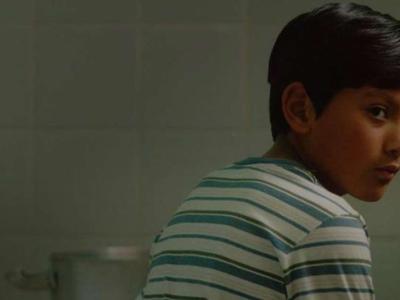O’ Desafio tells the story of a young idealist, Marcelo (portrayed by Oduvaldo Vianna Filho) and Ada, (Isabella Cerqueira Campos) his older lover - a beautiful woman, a mother and wife to someone else.
Marcelo is a young and handsome man, lost in his own idealism, he fantasizes about writing his own book, he works at a local newspaper and dreams of a better future for his country and its people. Ada is part of the upper-class bourgeois society that Marcelo so fervently despises.
Through the personal crises of the two main characters, this psychological account of life in an agitated, ever-changing society, explores the universal crises Brazil was facing at the time.
The film, initially censored by the military regime after the Golpe of 1964, later reached a wider, international audience and it is now considered a great and brave narration of the dark days of Brazilian political uncertainty.
O’ Desafio starts with Ada and Marcelo riding together in the same car, driving towards the viewer, symbolically urging us to join them on a journey of love, beauty and democratic rupture. It ends with the two protagonists splitting, going their separate ways and having separate endings.
Ada’s love for Marcelo seems to be a liberating sentiment for her. When she’s with him – whether sitting on the sofa of beautiful large, modernist houses overlooking Rio de Janeiro, or venturing together to abandoned, run-down sites, she feels free and able to be herself (or what she wishes to be). She wants to change, she is committed to the causes Marcelo is so passionate about - his revolutionary causes, she seeks to renounce and refuse her privileged life in favour of proletariat.
However, there is something stopping her and ultimately, she fails to be the woman she aspires to be. Ada is a sad soul, torn between what is right and the status quo, torn between being a mother and being a revolutionary. She opens up to us as she opens up to Marcelo, but we barely ever see her smile throughout the whole film. Her feeling of fatigue and alienation within her marital home is constant.
Marcelo’s love for Ada is intense but restrained by her connection to everything he despises. He wants Ada to leave her industrialist husband so they can start a life together. He is gentle in his movements but harsh in his words. The romance and passion between them is over-shadowed by the political events around them. Marcelo is driven by the necessity of reform. The repression the lower classes is synonymous with that of their opportunity to be together, creating a Challenge within his distressed soul.
The interludes of traditional, drum-based music act as folkloristic awakening, animating the sense of precariousness and helplessness amongst the lower and native classes of Rio.
The ending is symbolic and enigmatic. Marcelo walks down a staircase as if in a state of re-awakening, coming down to reality after dreams of illusions. There is nothing that can be solved because everything is too complex, too intertwined with subjectivity to be able to come to a universal and fair ending. Meanwhile Ada is alone in her husband’s weaving factory, surrounded by noisy, pumping machinery– her face calm, her heart tumultuously pounding, finally making the decision to remain in her comfort.
The complexity of reality is what drives this movie. A political and artistic manifesto against a regime imposing misery and precariousness. A theatrical-like production that doesn’t seek the extraordinary but tells of ordinary lives, translated into an articulated artform through symbolism, rationality, radical awakenings and one of the greatest screenplays you can ever come across.
Even though O’ Desafio talks about unrest and disorder of society and mind, it does so in a calming way, with its extensive, long dialogues merged with long shots, 360 degrees camera movements and the overall distance between the characters as a symbol of distance between classes.
Marcelo mid-film remarks, in a very nihilistic fashion, that “nobody has the right to be happy” but the ending inspires that even he is now being Dared to change his mind.















